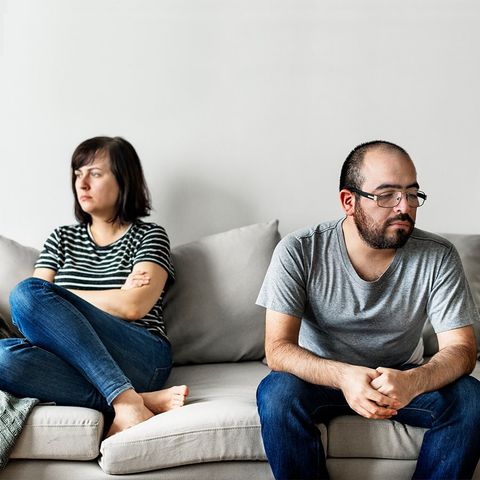415 N. Second Street, Saint Charles, MO
230 S. Bemiston Avenue, Suite 405, St. Louis, MO
Divorce & Legal Separation
Practice Area
Divorce & Legal Separation
Even in the best of circumstances, ending a marriage is a traumatic experience. Individuals are expected to make important legal decisions that will forever impact their lives, while grieving the loss of a significant relationship. The legal process of divorcing is daunting and overwhelming. It is crucial to have a support system of friends, family, and an experienced legal team to help navigate you through the process.
Whether you are considering a divorce of legal separation, there are a decision areas that need to be addressed in the short-term and long-term. For example, who will live in the marital home while the case is pending and who will keep the house when the case is over? Below is a list of decision areas that may be relevant to your divorce or legal separation.
Child Custody (Child Sharing Arrangement)
- Major Decision – Making (joint or one parent)
- Schedule of time for child(ren) with parents
- Weekdays and weekends
- Holidays/Vacations
- School year v. Summer
Child Support
- What will the amount be--calculated by Missouri guidelines?
- Will it be withheld from wages or not
- Child care expenses
- Private school tuition costs
- Health insurance cost
- Uncovered medical expenses
Maintenance (Spousal Support/Alimony)
- Waived?
- Reserved?
- Amount per month
- Length of time–or indefinite?
- For more information about maintenance, click here.
Health Insurance–Spouses
- Who carries health insurance now for each?
- Is insurance for both available from work?
- How each can be insured post-divorce–COBRA?
Life Insurance (not handled by court)?
- Is available to secure child support and/or maintenance?
- Who is to be named as beneficiary?
- Amount of coverage
Moving (relocation of parent’s residence)
- Are there moves anticipated that should be allowed without the formal notification by the statute?
- Should the parenting plan address potential relocation of either parent?
Property Issues
- Separate property: this is property one of you obtained separately either before the marriage or through gift or inheritance. It is usually set aside to either party from the start.
- Marital Property:
- Marital residence: Value? Sold or who gets it? Refinancing?
- Pension, profit-sharing or retirement or 401K plans: Value? How to divide?
- Other property: Stocks, bond, bank accounts, IRA’s, other real estate, cars, trucks, boats, household furniture and fixtures
Debts
- What debts are there?
- How is responsibility apportioned?
- Assignment of Debt
Attorney Fees & Court Costs
- How shared or who pays?
- Is there a Guardian ad Litem, an attorney appointed to represent the best interests of the children? If so, how are the GAL fees split?
Taxes
- Tax Exemption/Credit for the Child(ren): Who gets or how shared?
- How do you file taxes for the last full year married and during the divorce: - Joint or separate filing (last full year)
- Additionally liability or refund - Interest deductions for home mortgage - Claiming of interest income
Property Settlement
- Any equalizing payment owed by one to other after property division?
- When will the payment be due–lump sum or monthly installments?
Health Insurance–Spouses
- Who carries health insurance now for each?
- Is insurance for both available from work?
- How each can be insured post-divorce--COBRA?
Legal Separation vs. Dissolution of Marriage
The divorce and legal separation process is identical, except that in a legal separation the parties remain married. This means that property and debts are still divided, and orders are entered for the support and custody of the children. The parties may decide in the future to set aside the legal separation or to convert the legal separation into a dissolution of marriage. The process for both is straightforward, but it does require additional paperwork to be filed with the court.
Same Sex Couples
Prior to the U.S. Supreme Court’s decision in Obergefell v. Hodges in 2015, same-sex couples had a difficult time getting divorced in the State of Missouri, even if they were legally married in another state. Same-sex couples are now able to get divorced or legally separated through the same process as opposite-sex couples in any state.
Military Divorces
If you or your spouse have served in the military during your marriage, then military benefits (including retirement benefits such as TSP and annuity) must be divided at divorce. Unique military benefits such as SBP (Survivor Benefit Plan) and SGLI (Servicemember’s Group Life Insurance) should be addressed as well. Our attorneys have experience with “military divorces” and can help you in this process.
How to get a divorce?
It is important to understand your options for how to get a divorce or legal separation. To learn more about your process options, go here.
Related Posts from the Newsroom

By Allison Gerli
•
March 30, 2023
A custody proceeding can be an incredibly stressful and anxiety-provoking time for not only you but also your child. When a Guardian ad Litem or "GAL" is appointed to your case, the GAL will become a new person in your and your child’s lives. Below are some tips & guidelines for interacting with your child as they work with a GAL. The GAL is the child’s legal representative and, as such, may examine, cross-examine, subpoena witnesses, and offer testimony on behalf of the child at any hearing or trial. However, the primary role of the GAL is to make recommendations as to what he or she believes is in the child’s best interests. The GAL’s recommendation may be contrary to what the child believes is best. The GAL may make recommendations to the court as to what is in the child’s best interests regarding child custody, which may include recommendations about legal custody, physical custody, communication between parents and the child, weekly schedules, vacation time, and holiday time. After the GAL is appointed, the GAL often meets with the parents or the third parties seeking custody to start. The GAL will then meet with the child directly. The meeting may take place at school, the GAL’s office, the child’s residence, or a public location. It can be discomforting to have a new person enter a child’s life in such a personal way. It is also imperative that the GAL can enter the child’s life in as smooth a process as possible. To protect the process, you should not share with the child why a GAL has been appointed for them. Blaming or describing the opposing party’s negative behavior as the reason for the GAL’s appointment may influence their statements and impact the purity of the GAL’s meetings. GAL’s want to ensure their communication with the child is unbiased and untampered with so that the GAL can gain the most honest and reasonable assessment of the situation possible. Rather than saying, “a GAL has been appointed because Dad or Mom does X thing,” tell the child that the GAL is a new person to talk with them about this transition with their parents. Assure them that this person is there for them, and they should try to have an open conversation about their feelings and concerns about the situation. The GAL will introduce themselves to the child in the way they see fit, but you can let the child know ahead of time that they are meeting with the GAL and that this will be a safe space for them. Remind the child that they can and should be honest with the GAL and that the GAL is there to help bring their voice into the process. You can emphasize that they can truthfully answer any question the GAL asks and that it is also okay to ask the GAL any questions of their own. You can also tell the child that they may meet with this person more than once, which is often the case, so if they do not remember everything at the first meeting or do not know the answers to any questions, that is okay. If the child remembers an answer to a question later, you can offer to help them contact the GAL to provide the answer. GALs often have different policies for communicating with the child while the case is pending and how often they will meet with them. It is best to ask the GAL assigned to your case about their policies in advance. To respect the privacy of the GAL’s relationship with the child, please refrain from asking them what they discussed in their meeting with the GAL. The child may want to share certain aspects of their conversations with you, but please keep these debriefs as general as possible and do not probe. If the child shares something with you about their conversation with the GAL that you find concerning, please let your attorney know, and they will contact the GAL if necessary. All of the attorneys at The Center for Family Law are trained as GALs, in addition to representing individuals involved in divorce and child custody matters. Please contact us today to schedule a consultation. Article written with contribution from law clerk, Adele Rosenthal. Adele is a 2L at Washington University School of Law.

By Allison Gerli
•
September 22, 2020
You and your spouse may have accumulated debts of various types during the course of your marriage. If so, you are probably concerned about how to divide those debts and what the consequences will be if the debts are not paid, particularly if you do not trust that your spouse will be responsible about making payments.
Want more information?

© 2025
The Center for Family Law


